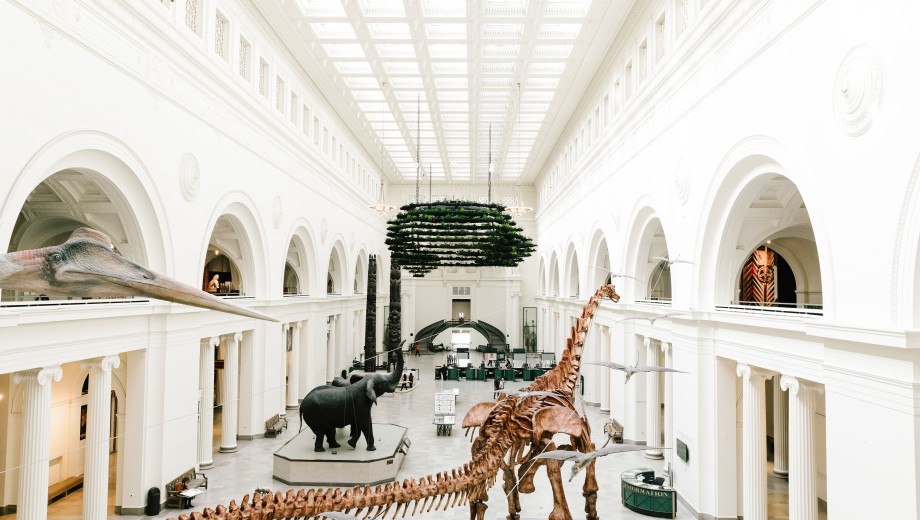In “A Poet and His Patrons,” Tableau spoke with Eric Elshtain about his work at the Field Museum. Here is a poem he wrote about a giant dinosaur named Máximo.
In this poem I wanted to capture the wonder evoked by a beast of this size, a size almost impossible to imagine, even with the evidence right in front of you. I watched people trying to photograph Máximo and saw a perfect metaphor for trying to fit such a beast into our mind’s eye. The poem’s final image of a Rorschach inkblot refers to the idea that there is still so much to learn about these amazing animals, while also addressing how much we project upon these creatures exactly because there is still such mystery surrounding them. —E.E.
Ode to Máximo
Earth—this Earth?—once bore
you upon its shoulder, Máximo?
Máximo, even being the solid hollow
in this hall, you barely fit into my poem!
Máximo, you must be made of trees
to climb, and your pelvic seat
an actual hammock for fifty people,
and your spine an enormous saw
to hew in half the clouds.
“Up,” Máximo, is your Very Nature,
the Very Big under which we could have lived
had we lived when you toed and hoofed
your way through floodplains.
So, how far back do we need to go
to fit you into our frames
of mind or camera or phone?
You who stretch our every sense
just too much body to understand
here and now though we may climb
eye to eye
to visit your thumb-shaped head,
see the tiny-seeming pegs
you once used to ground down leaves
millions of years away from us.
Your hips and chest are like apostrophes
around our wonder, around a sound I heard:
a mother walking nose to tail tip
and back, pointing all the while up
humming from low pitch to high
her singing illustrating to her toddler
your great length, Máximo.
You who have reached out to us
revealing your weird, titanic geometry,
your breast bones and scapulae
like one of those old ink-blots
into which we see
something of ourselves.

